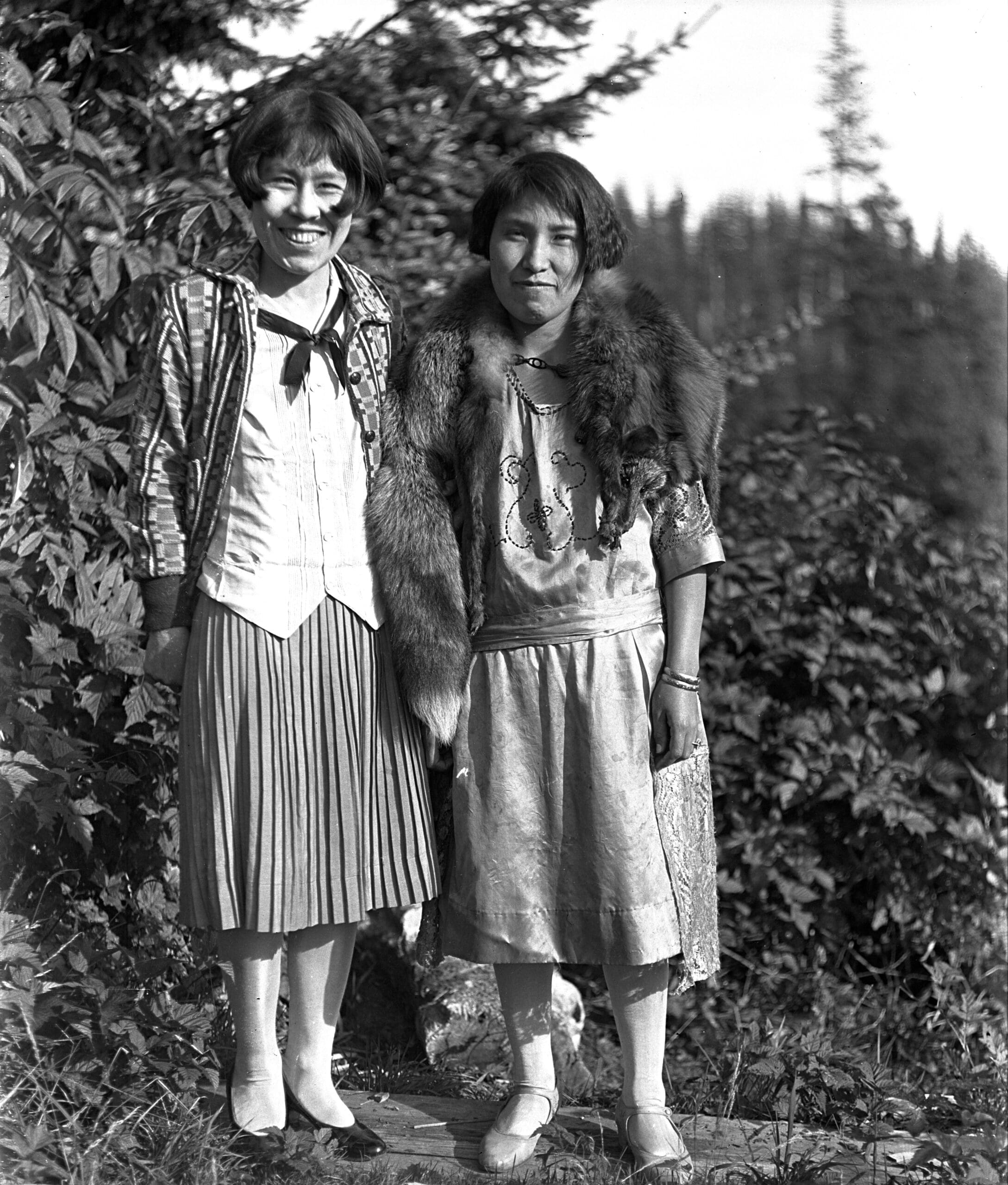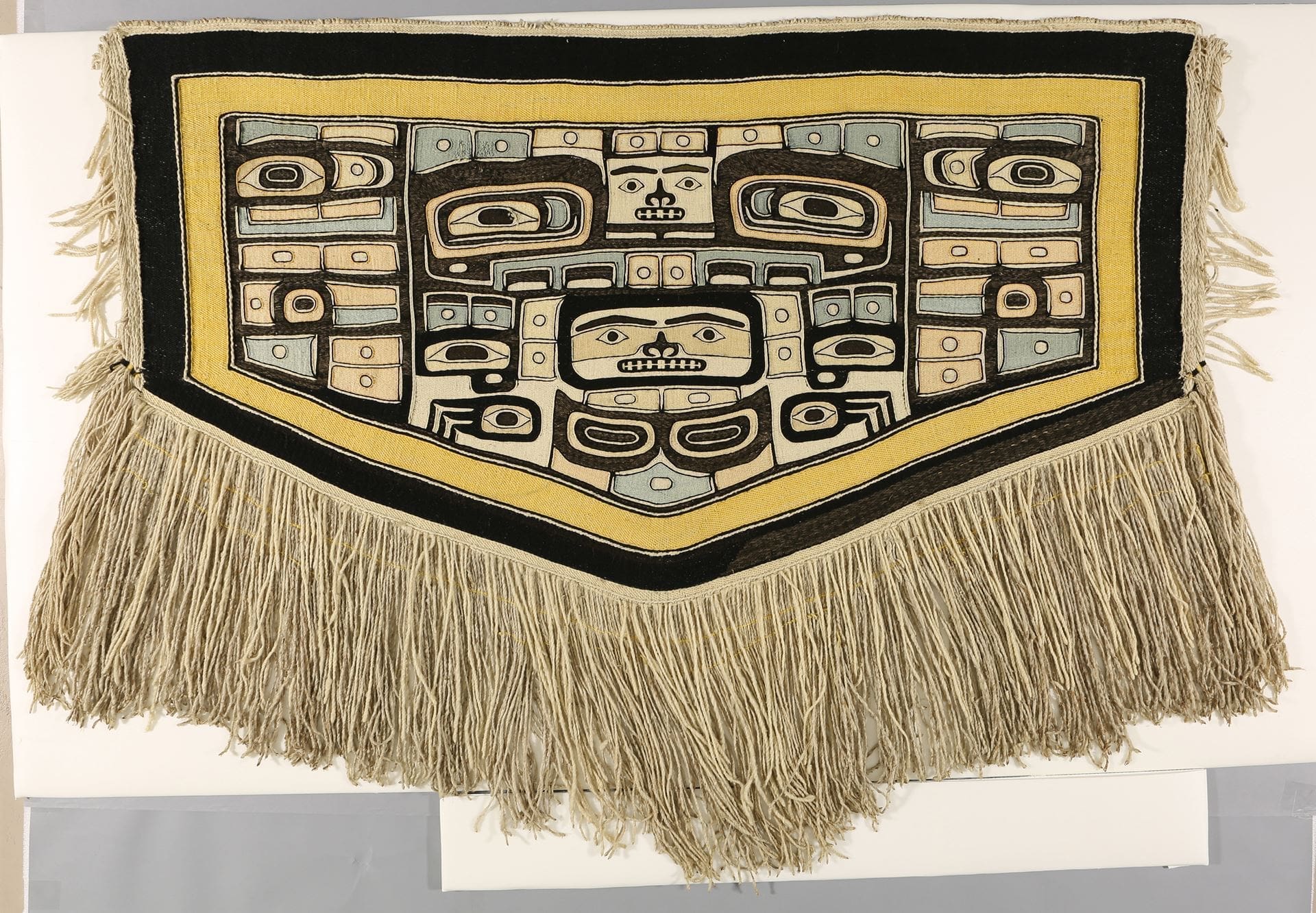The following article was written by Emily Pastore, the Archives and Collections Manager at Sealaska Heritage Institute.
The Sealaska Heritage Institute (SHI) is a private nonprofit founded in 1980 to perpetuate and enhance Tlingit, Haida and Tsimshian cultures of Southeast Alaska. The SHI archives are a key part of that mission, and they have a duty to both preserve and provide access to the materials in the collections. This is a delicate balance to find, the best way to preserve materials is often to safely pack them out of the light and away from interested hands, but if we never share the materials in our collections, is there really a point to keeping them? The Tlingit term Wooch Yáx̱ means spiritual and social balance and is one of the core Tlingit values; SHI seeks to maintain balance in all ways, including in the archives.
The SHI archives began small, but over the years the collections have grown and are valuable resources to the Alaska Native, academic, and general communities, and include the most Tlingit language recordings in the world. Part of the mission and goals of SHI is to make all of our resources available worldwide. With this in mind, we began the transition to Proficio by Re:Discovery in 2017; the Wooch Yáx̱ project was made possible in part by the Institute of Museum and Library Services MN-00-17-0034-17.
Until recently, SHI had used PastPerfect Museum Software and Archon to maintain electronic records of the art and ethnographic object collections and the archival collections. While PastPerfect met our needs for years, with the expansion of our object collections and a need to provide public electronic access, it was time for a change. Archon, which is no longer supported software, also needed an update.
Seiki Kayamori Photograph Collection. PO 072, Item 7. William L. Paul Sr. Archives, Sealaska Heritage Institute, Juneau, AK.
Proficio has the capacity to serve as a database for objects, archives, and library materials. This provided a unique opportunity for SHI to showcase both the art and ethnographic collections and the archival collections in a single database. The database has comprehensive searching and browsing capabilities, as well as the ability to attach digital objects and related media. With one search, patrons can find both objects and archival records related to their research from the comfort – and safety – of their home.
With the onset of COVID-19, SHI closed in-person reference appointments and Proficio has become a vital way to connect with our patrons in a virtual environment. Researchers can now explore our art and ethnographic collections, which have never been publically accessible online, as well as updated archival records; there are online exhibits and highlighted objects and collections, which can easily and regularly be updated. There is still work to be done, digital photograph collections are being incorporated and many finding aids need to be expanded, but these are exciting projects we will incorporate into our now-remote internship program this summer.
With Proficio, SHI is also able to incorporate indigenous knowledge directly into the records. Tlingit, Haida, or Tsimshian words for items can be added; and authority records and lexicons can be modified to include the indigenous languages. Additionally, we invited two Tlingit elders to travel to Juneau to record footage of them discussing various objects, including identifying the appropriate Tlingit name for the objects and explaining their use in Tlingit culture. These videos are attached to the object records in Proficio and are highlighted in the current online exhibit, Wooch Yáx̱: Sealaska Heritage Institute’s Art/Ethnographic Collection Inventory and Indigenous Knowledge Project. Also included are audio clips with the pronunciation of the object name in Tlingit.
2017.018.001 Chilkat Robe from circa 1900
Proficio provides an innovative way for SHI to maintain the balance between preservation and access. Items that rarely come out of the vault due to preservation concerns, such as ancient Chilkat robes, are viewable world-wide in the online platform. This increased access is a major benefit for Alaska Native artists practicing their work anywhere in the world by providing a resource for inspiration and study. This database is the first time that SHI’s art and ethnographic collections have been accessible online, and many people may not have been aware of how to request a reference appointment to view the objects, or indeed, what objects were stored in our archives at all. An online representation of an object is not the same as viewing it in person, and SHI looks forward to reopening to in-person reference in the future, but for now Proficio allows SHI to expand reference services in a time when in-person research is impossible.
It is a delicate balance to preserve materials and make them accessible and useful, and Proficio is a new tool for SHI to use to maintain that balance. We invite you to check out the new database and explore the different collections; we would also appreciate if you completed this short, 5-minute survey about your experience. Enjoy, and contact us with any questions at SH*********@******ka.com!
Emily Pastore is the Archives and Collections Manager at Sealaska Heritage Institute.



